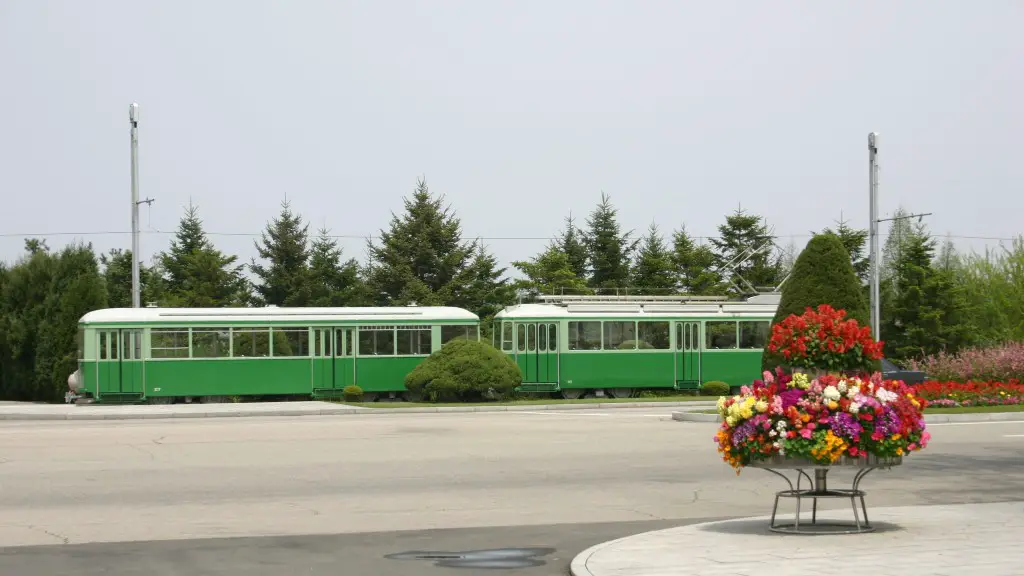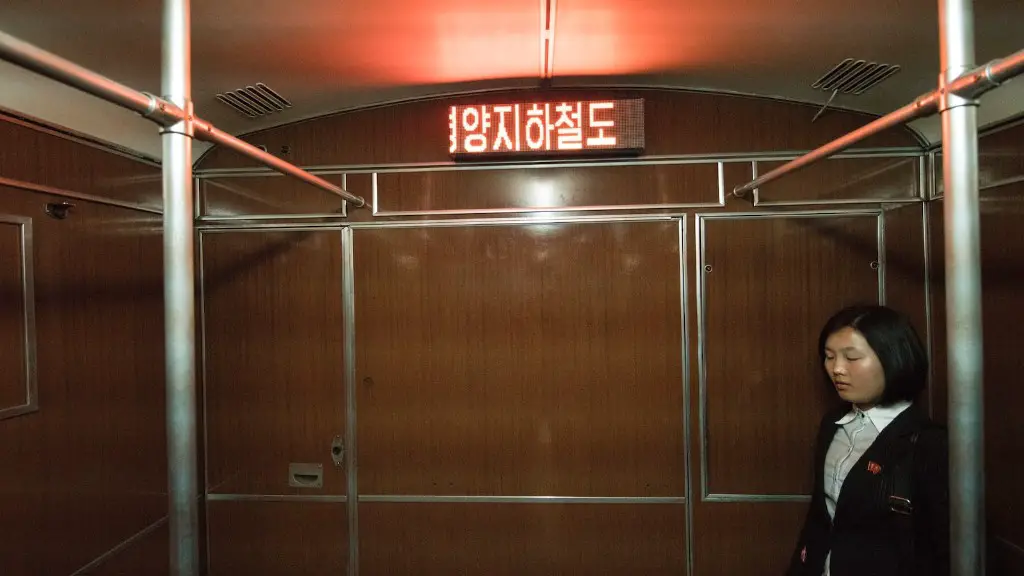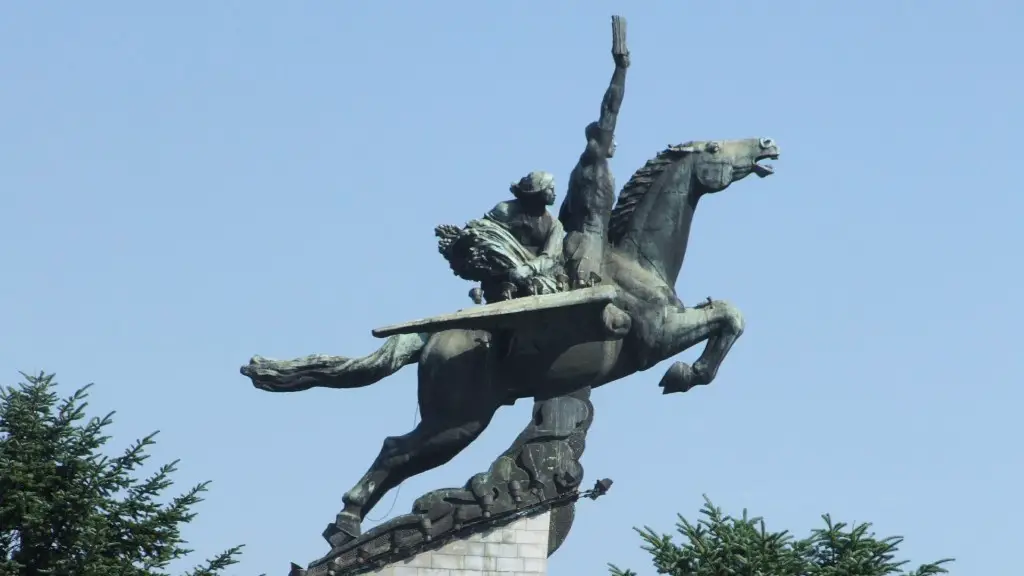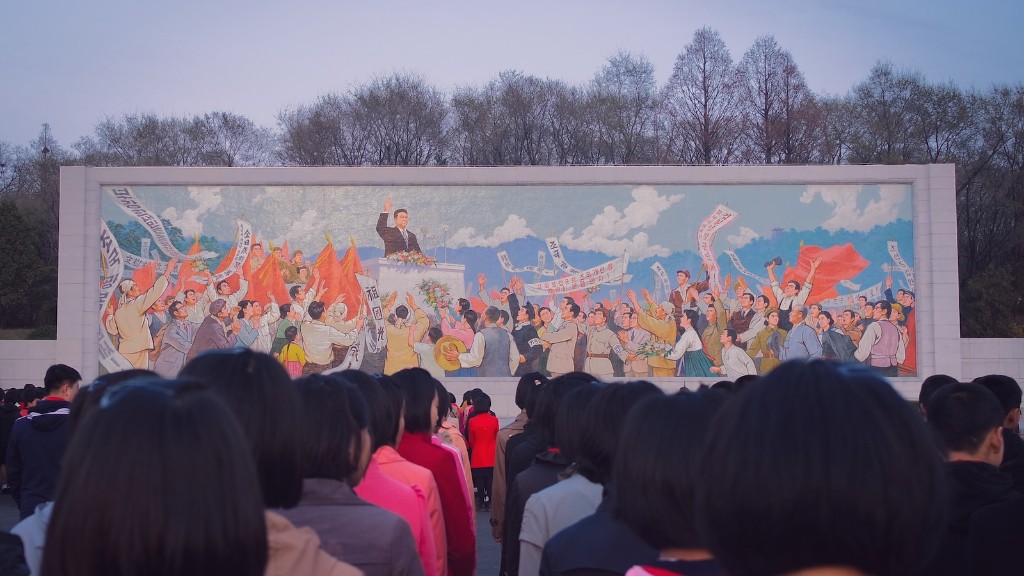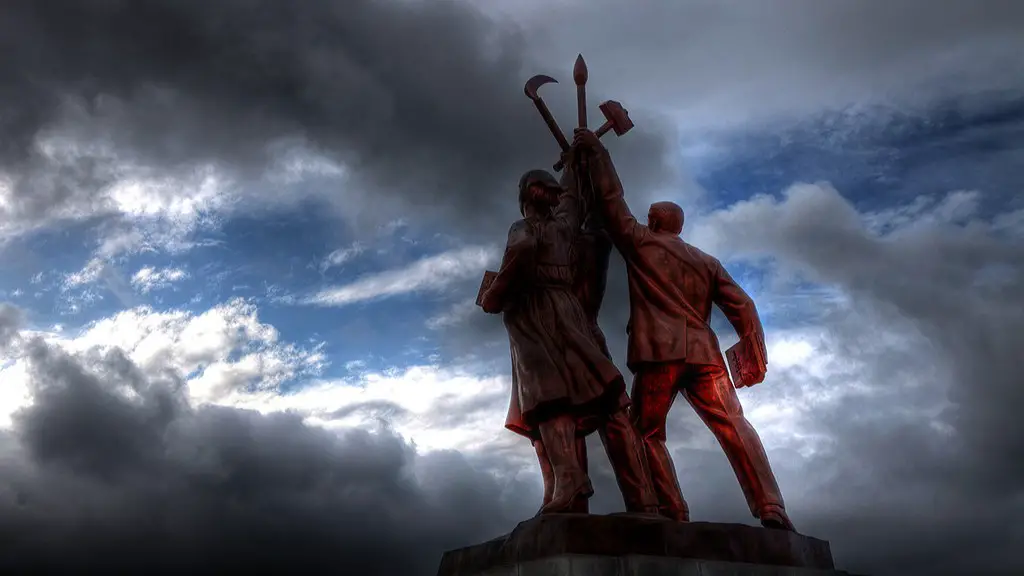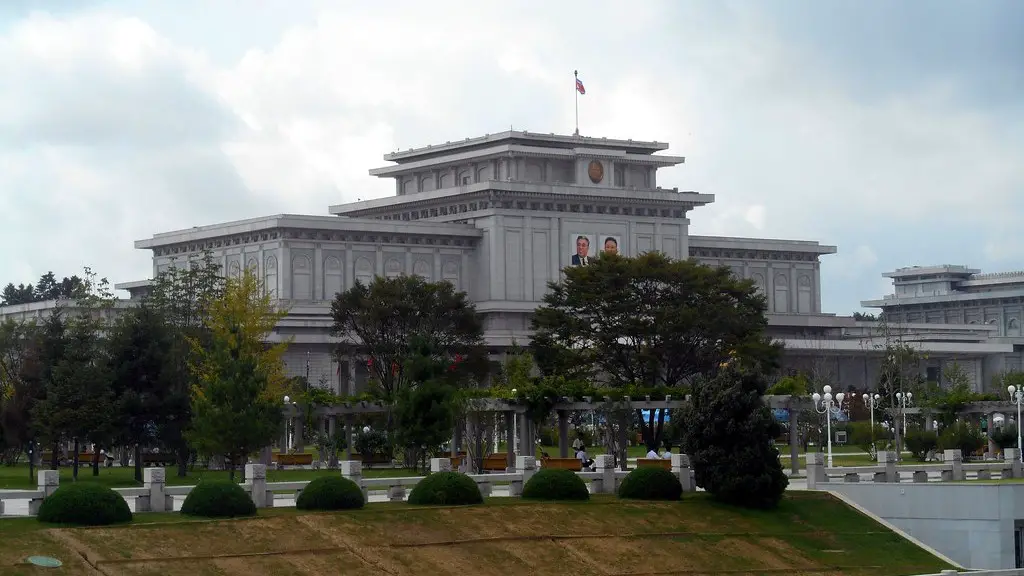Living in a prosperous and robust democracy, it can be difficult to comprehend what life is like in North Korea. The state is notorious for its extreme repression of human rights and limited access to the outside world, particularly for its citizens. It is one of the last totalitarian regimes in the world and is increasingly becoming more isolated from the rest of the globe.
North Korea has been under one-party rule since its 1947 founding and has been an authoritarian state since then. Its authoritarian system uses a set of strict social controls and a powerful secret police to maintain an oppressive level of control over its citizens. Those who oppose the regime are subject to punishment, including torture and execution, making it virtually impossible for any meaningful opposition to exist.
The regime’s grip on power is built upon its strategy of creating a strong sense of fear among North Koreans. Abuses of power by the state are commonplace and often overlooked. People who speak out against the regime or show any kind of dissent are quickly silenced. North Koreans have very few rights and are closely monitored and restricted from traveling outside the country without official permission.
North Korea has received little international assistance, which has further isolated the country and weakened its already poor economy. Sanctions imposed by the United Nations Security Council and other countries have contributed to food insecurity, as well as weakened health care, education and other public services. Access to goods and services is extremely limited and most of the population lives in poverty.
International organizations such as Human Rights Watch and Amnesty International have been increasingly vocal in their calls for the regime to implement reforms. They are concerned about the lack of civil and political rights, arbitrary arrests, the use of torture and other cruel punishments, as well as the forced labor camps and pervasive surveillance system.
Despite the harsh environment in North Korea, there have been signs of change in recent years. North Korea has slowly started to open up to the international community and there have been improvements in some areas such as commerce, investment and foreign relations. However, much work needs to be done to bring about real and lasting change for the country’s citizens.
Change from Within
For any meaningful reform to occur, North Korea will need to experience a change from within. Without strong internal pressure from North Korean citizens, the regime is likely to remain in power. It will take a concerted effort from the people to push for greater freedoms and rights.
Unfortunately, the regime’s control over the media and pervasive surveillance has meant that much of the population is either too scared or too unaware of the possibilities of a different type of life. It is crucial that North Koreans have access to outside information that can help them to have a better understanding of the world.
New technologies such as the Internet and mobile phones have given the people of North Korea greater access to the outside world. However, access is strictly controlled, with those caught using unapproved technology often facing severe punishments. Nonetheless, increased access to information has been able to seep into the country, allowing citizens to gain a glimpse at life beyond the oppressive system.
Civil society in North Korea is also slowly growing. One example is the emergence of marketplaces, which allow citizens to purchase goods. These markets are not officially sanctioned but are largely tolerated by the regime. These markets provide a form of economic freedom and even create a sort of space for political dissent.
Despite these signs of progress, much work remains to be done before North Korea will be able to become fully free. There are no easy answers when it comes to finding a solution but it is important to recognize that progress can be made by involving individuals from both within and outside the country.
Economic Scarcity and Supply Routes
An important factor in North Korea’s isolation is its lack of international economic ties. The regime’s autarky-heavy approach and restrictive policies have largely cut the country off from trade, investment, and aid from other countries and international organizations. This lack of access to resources and financial support has made it difficult for the country to modernize and develop its economy.
Another issue is the restricted supply routes which make it challenging for North Koreans to access many goods or services. The borders of the country are monitored closely, with even locals needing a valid certificate or travel permit to enter or leave. Combined with the sanctions imposed on the country, accessing goods and services can be difficult or even impossible in some cases.
Any effort to assist North Koreans in improving their livelihoods is heavily blocked by the regime, who is wary of any foreign influence. But there has been some progress in recent years. Organizations have been able to establish a presence in North Korea and provide limited services to citizens. This has helped to improve access to food, education, and healthcare for many North Koreans who previously lacked access to these essential services.
International aid is one of the few ways through which foreign assistance is allowed into North Korea. Aid organizations such as UNICEF and the Red Cross have been able to provide assistance to citizens in need through these channels.
Foreign investment is also on the rise in North Korea. International companies and organizations have begun to recognize the potential that North Korea has to offer, and thus have begun to invest in the country in the hopes of tapping into its untapped markets, resources, and manpower.
However, there is still much resistance from the regime towards foreign investment and aid. The regime has been reluctant to accept foreign help as it has led to a greater challenge to its power.
Impact of International Diplomacy
International diplomacy is one of the few channels left for North Korea to access aid and increase its ties with the global community. North Korean diplomats have worked tirelessly to build bridges with other countries, although results so far have been limited.
The Trump administration’s efforts to establish dialogue with North Korea have been met with some resistance and skepticism. Talks between the two countries largely focused on denuclearization, rather than on the issue of human rights. Some of the decisions made by previous administrations in regards to North Korea were deemed too soft by many, while the current approach taken by President Trump has been accused of being too narrowly focused.
This lack of focus on human rights has been widely condemned by many countries, including in the United Nations. The UN has expressed grave concerns about the human rights situation in North Korea, calling for the urgent need for progress.
Furthermore, the failure of the international community to effectively address North Korea’s human rights violations has been an ongoing issue. Despite some progress, the situation in North Korea remains dire, and international pressure will be needed to ensure that meaningful reforms are implemented.
Regional Power Dynamics
The regional power dynamics also play a significant role in North Korea’s predicament. Its growing nuclear capabilities and struggling economy has made it a difficult state to engage with. Furthermore, its close relationship with China makes it hard for other countries to bring meaningful pressure to bear on the regime.
Historically, North Korea has largely been viewed as a pawn by other major powers, with decisions being made on its behalf. This has led to situations where North Koreans were often forgotten or left voiceless while the fate of the country is decided by international forces.
The country’s isolation has been exacerbated by this power imbalance, making it difficult for North Korea to find allies and gain access to necessary resources. Furthermore, North Korea has limited it own power due to its refusal to seek out foreign assistance and collaboration.
It is clear that North Korea’s power dynamics and its relationship with the international community have played a significant role in its current predicament. Addressing these issues should be a top priority for both North Korea and its regional and international neighbours.
Manufacturing Instability
The most immediate obstacle to progress in North Korea is the ongoing political instability. The regime has been unwilling or unable to make meaningful reform to improve the situation of its citizens. Its own internal power struggles, combined with its hostile nature towards foreign countries and non-state actors, has created an environment of fear and distrust.
North Korea’s leaders have also gone out of their way to manufacture instability. Its attempts to gain international attention through provocative nuclear and missile tests have alienated it further from the global community. Its aggressive stance towards foreign countries and its refusal to cooperate has created a situation where meaningful dialogue is extremely difficult.
The international community has responded to this aggression with more sanctions and diplomatic pressure. But the lack of an effective strategy from all sides has meant that these efforts have not been able to bring about real change for North Koreans.
For any progress to be made, North Korea’s leaders will have to acknowledge their role in creating the current situation and make a concerted effort to address the underlying issues.
Underground Pursuit of Freedom
Despite the hostile environment of North Korea, there are those who still pursue and defend their freedoms.
The pursuit of freedom is often carried out in secretive or underground ways, as open dissent is extremely dangerous. Activism is often carried out on the fringes of society, or in the privacy of one’s own home.
One example of such activism is the proliferation of South Korean DVDs, CDs and books into North Korea, which are a powerful source of information and knowledge for the country’s citizens. These materials provide North Koreans with news, stories and ideas from outside the regime, which have been invaluable for helping citizens understand what life is like in more open societies.
What is perhaps most inspiring is the resilience of the North Korean people, who despite living in oppressive conditions, continue to push and strive for a better life.
Much still needs to be done before true freedom can be realized in North Korea, but it is possible that through a combination of concerted international pressure and internal activism, change will come in due time.
